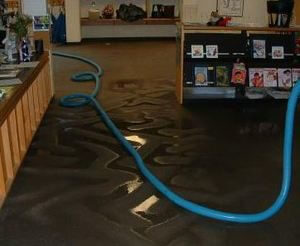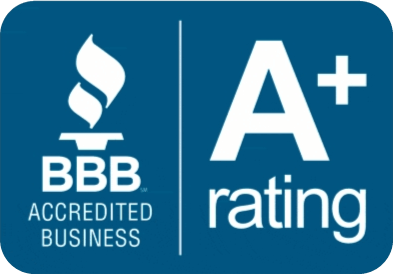As winter approaches and we start to experience colder weather in Columbia South Carolina and surrounding areas, we need to consider whether the water pipes in our home are protected from freezing and what to do if they do freeze. In a previous article, we discussed 10 ways to prevent your home’s water pipes from freezing. In this article, we’d like to share some advice in the case your water pipes do freeze. The pipes most at risk of freezing are usually located in unheated basements, crawl spaces, attics, garages, or kitchen cabinets as well as any pipes located near exterior walls that have little or no insulation. Frozen water pipes can burst and cause extensive damage to your home and your belongings. Therefore, you need to be prepared to deal with such a costly and terribly inconvenient issue.
Frozen Water Pipes Bursting
If the pipes of your home freeze during a cold spell, it doesn’t mean that they will burst. When pipes do burst, it is due to excessive pressure on your home’s plumbing pipes. The pressure, initially, starts by causing tiny leaks which can grow and result in flooding. When you consider that even a small crack can result in a leak of up to 250 gallons of water a day, the damage it can cause to the structure or your home, your belongings can be significant. What’s more, the leak can also result in mold infestations.
Identifying a Frozen Water Pipe
The easiest way to determine whether a pipe is frozen is if it is coated in frost or ice. Another sign is visible bulges created by ice which expanded and will most likely cause the pipe to crack or burst.
However, not all plumbing pipes are visible so you need to be aware of other possible signs. For example, a noticeable reduction in water pressure or your toilets not refilling as quickly as they did before the cold spell can also be an indication that you have frozen water pipes. Additionally, if you notice unusual odors caused by frozen pipes that prevent drainage and end up backing up.
Locating Frozen Water Pipes
The best way to locate frozen pipes is to test your facets and determine which are working properly. In the case you have no running water anywhere in your home, then it is likely that the frozen pipe is located near your home’s main water pipe. On the other hand, if you have running water on one floor but not another then you should be looking for a frozen pipe between the different floors. Likewise, If you have running water in one room but not in another on the same floor then you probably have a frozen pipe between the main water pipe and the split.
Thawing Frozen Water Pipes
Frozen pipes can lead to potentially serious and costly damage, which is why Biotek Environmental, Inc. recommends that you notify professionals to deal with this issue. This is especially important, if you have frozen underground pipes running into your home or if frozen underground pipes are outside your house. In both cases, you need professional help. Nonetheless, if you decide to try to thaw your frozen pipes there are several actions you can take.
Turning On/Off Water
If you turn on your faucets and you get some water running then you should keep them turned on since the movement of water can help thaw the frozen pipe. However, if you don’t have any running water you can still turn on the faucets so that you know when the pipes are beginning to thaw. PLEASE NOTE that some plumbing experts also suggest that you turn off the main water valve to minimize water damage if a pipe bursts.
Apply Heat to the Pipe
Another way to actively thaw a frozen water pipe is to soak a towel in hot water and wrap it around the pipe. Similarly, you can wrap a battery-powered heating pad around it (please don’t use electric heating pats as there is the possibility of electric shock) and after it has thawed you should remove the wet towel or eclectic heating pad and wrap the pipes with dry insulation to prevent refreezing.
You can also try to apply hot air to the frozen pipe by using a hairdryer or another heat source as long as you are not near water and in danger of experiencing an electric shock. Please avoid the use of an open flame by using, for example, a blowtorch, as it is unsafe due to the possibility of a fire.
Increase Temperature in the Home
You should also open kitchen and bathroom cabinet doors, especially under sinks and faucets. By doing so, you will allow warm air to reach the frozen pipes. And of course, as we have mentioned, you need to keep faucets turned on to help relieve pressure and allow the water to flow when the pipes begin to thaw. In addition, you should increase the temperature in your home by turning the thermostat up to help speed up the thawing process.
What to Do If Water Pipes Break
The first thing you need to do if your water pipes burst is turn off the main water supply to minimize flooding. Then you should contact a professional water damage restoration service like Biotek Environmental, Inc.. It’s vital that you do this right away to get the source of the water contained and drying started immediately in order to prevent structural damage or mold growth. If the damage is extensive you should also notify your home insurance agent since most homeowners insurance policies usually cover burst pipes and the resulting water damage.
Why Choose Biotek Environmental, Inc. for Your Water Restoration?
Biotek Environmental, Inc. is here to help with all your emergency water damage repair needs. Our water damage repair team is on call 24 hours a day, 365 days a year. Therefore, Biotek Environmental, Inc. will have someone on-site at your property to assess and begin restoration within 2 hours of your call to us. By having a crew on-site quickly and handling the water damage repair in accordance with proven industry standards, the cost of mitigation is minimized. In addition, the potential for mold growth is eliminated.
Our water restoration team of professionals also uses specialized thermal imaging cameras in order to find hidden leaks and damage without tearing apart walls. Often water pipes that burst or leak in your house may not be noticed immediately, the scope of clean-up in water damage restoration procedures may be much more than what is visible.
What’s more, because the professionals at Biotek Environmental, Inc. are specialists in the cleanup and repair of flood damage, we are prepared to remedy the damage sustained to your home or business from any type of water damage and to prevent or stop the growth of mold and mildew in order to avoid biological contamination. Moreover, regardless of the extent of water damage, water contamination spreads quickly. We specialize in water extraction and expert cleaning and sanitization of all carpeting in your home or office building.
As a result of our excellent reputation, We have an “A+” rating with the Better Business Bureau in the water damage and restoration markets we serve! Call us toll-free for all your water damage and mold restoration needs in Columbia, Greenville, and Spartanburg, SC at 866-630-7340 or contact us online.


